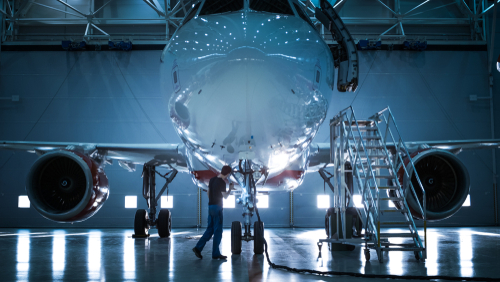
U.S. Sens. Roger Wicker (R-MS) and Maria Cantwell (D-WA) introduced bipartisan legislation this week aimed at improving aircraft safety and certification reform.
The legislation would implement provisions to improve air safety by addressing pilot responses to cockpit alerts. The changes come in the aftermath of the Boeing 737 MAX crashes around the world.
Wicker, the Chairman of the Senate Committee on Commerce, Science and Transportation, said the legislation was based on a review of those accidents and that the legislation would take the steps needed to improve safety from the manufacturing process to flight.
“Ranking Member Cantwell and I have reviewed the evidence from accident reports, solicited recommendations from aviation experts, spoken to the victims’ families, witnesses, and stakeholders, and held a series of hearings on aviation safety,” Wicker said. “We are introducing bipartisan legislation that would take important steps to improve safety, especially as it relates to the manufacturing of passenger aircraft. I look forward to continuing our work to enhance safety for the flying public and avoid future tragedies.”
The key to future air travel is safety, Cantwell said.
“A primary goal of this legislation is to make sure the FAA remains in the driver’s seat when it comes to certification,” Cantwell said. “This bill makes it clear the FAA is in charge of the certification workforce and the approval process. Additionally, it requires the FAA to act on the NTSB’s recommendations on new safety standards for automation and pilot training.
The legislation will help the FAA keep pace with changing skill levels and new technology to update and oversee the certification process. With the help of the Human Factors Center of Excellence and Office of Continuing Education, Cantwell said, the FAA would be able to train inspectors to have the expertise they needed.
According to Wicker and Cantwell, the Aircraft Safety and Certification Reform Act would mandate safety management systems for large aircraft and engine manufacturers; require the FAA to review “human factor” related assumptions, and to conduct more research into how the human factor relates to situations involving multiple cockpit alerts and automation; require flight testing by international and domestic airline pilots and provide funding authorizations for the FAA to hire specialized staff with expertise in new and emerging technologies to help update certification standards, among other things.